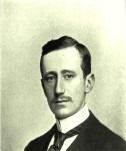A DEVELOPING SINK
Oct 19, 2023

Archibald Williams was a prolific British author and journalist who lived from 1871 to 1934.
Archibald Williams was a prolific British author and journalist who lived from 1871 to 1934.
Oct 19, 2023
Oct 19, 2023
Oct 17, 2023
Nov 03, 2023
Oct 19, 2023
Oct 19, 2023
Oct 17, 2023
Nov 03, 2023